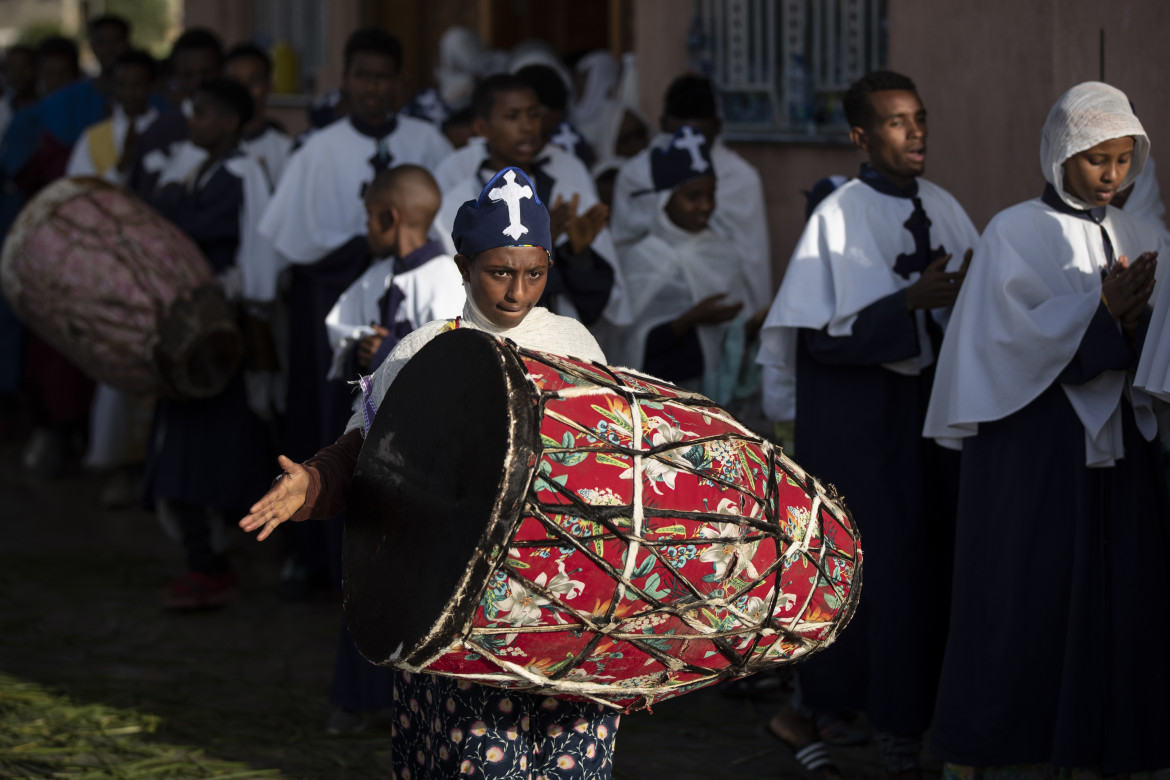Analysis
From war to voting, a road full of obstacles for Ethiopia
The violence in Tigray continues, and the U.S. development agency USAID claims that a critical point has been reached in the region: ‘Humanitarian access is now a matter of life and death.’ Prime Minister Abiy Ahmed and his Prosperity Party will face an electoral test June 5.

After more than six months since violence broke out in Tigray, Ethiopia is preparing to go to the polls in a situation that is full of uncertainty. The road to the legislative and regional elections on June 5 is fraught with obstacles. The European Union recently scrapped its plans to send in an election observation mission due to problems regarding the security of envoys, the communication systems and the independence of the mission.
The spokesperson of the Ethiopian Ministry of Foreign Affairs, Dina Mufti, said that the European mission wanted to import “V-SAT communication equipment which is out of Ethiopia’s communication technology system,” adding that the national telecommunications system could have been used instead. Brussels has contributed funds to Ethiopia’s National Electoral Council (NEBE) to prepare for the vote to the tune of over €20 million.
Voter registration is being hampered by major logistical problems: according to diplomatic sources, the Electoral Council is feeling the absence of the logistical support usually provided by the military, engaged in fighting in Tigray. At the end of April, the president of the Electoral Council, Birtukan Mideksa announced that 31,724,947 voters were registered, and that 4,126 polling stations would be closed for security reasons, while in some areas registration has not even begun. Some of the opposition parties are planning boycotts.
Meanwhile, the violence in Tigray continues, and the U.S. development agency USAID claims that a critical point has been reached in the region: “Humanitarian access is now a matter of life and death.”
There are also international obstacles that are having an impact on the Ethiopian context: first of all, the tensions with Sudan and Egypt regarding the plan for the second filling of the Great Ethiopian Renaissance dam, planned by Addis Ababa for next July. In this matter, Ethiopia wants to put the other parties in front of a fait accompli: i.e. fill up the dam first and then negotiate, which Sudan and Egypt are unwilling to accept. The two countries have asked the UN Security Council to call on Ethiopia to refrain from unilaterally filling the dam before the parties have reached an agreement.
Egypt and Sudan contend that Ethiopia’s plan to add 13.5 billion cubic meters of water to the reservoir of the dam on the Blue Nile represents a threat to them. In April, in an apparent warning to Addis Ababa (and in preparation for a possible escalation of tensions), Sudan and Egypt held their second joint military exercise since November 2020. On Wednesday, Jeffrey Feltman, the U.S. government envoy to the Horn of Africa, met with Egyptian President Abdel Fattah al-Sisi to find a resolution to the contentious dam issue.
From the point of view of the elections, the campaign is languishing, with few rallies and some scattered banners for the Prosperity Party on display, featuring a light bulb symbolizing a brighter future. This party, founded by the Prime Minister only a year ago, is a pan-Ethiopian movement facing the challenge of increasingly ethnic parties seeking more power for their regions.
Many regional governments have border disputes with neighboring areas and have to contend with low- and mid-level unrest. For nearly three decades, before Prime Minister Abiy took office, Ethiopia was ruled by a coalition of four ethnically-based movements dominated by the Tigray Party. It was an administration that ruled the country in an increasingly autocratic manner, until Abiy took power in 2018 after years of bloody anti-government street protests.
Now, the Prime Minister himself is facing an electoral test that is not only about his future, but about that of Ethiopia as well. According to him, these elections will be “one of the chapters of Ethiopia’s resurrection.” After an era of “darkness and turmoil, thorns and thistles, pain and death, we have arrived at the top of the mountain where the light shines, bringing the hope of democracy for our country.” American diplomacy (and, in its wake, European diplomacy) is instead advocating for a transitional government and a postponement of the elections, while the Prime Minister is strongly motivated to stay the course by the support of Russia, China and India.
In 1993, the famous political scientist Samuel Huntington was commissioned to evaluate the prospects of democracy in Ethiopia, and President Meles Zenawi asked him the following question: “Professor Huntington, I have read your book The Third Wave. According to your analysis, countries become democratic after they become rich. Ethiopia is an extremely poor country, very far from a high level of economic development. Does that mean democracy is impossible here?”
Huntington admitted that the general balance of economic, social, and other conditions in Ethiopia was not conducive to the development of a “Western-style democracy.” However, he argued that another type of democratic system could be created in Ethiopia, but this “depends overwhelmingly on the extent to which political leaders want to create an Ethiopian democracy. Political regimes are created not by preconditions, but by political leaders.” And this appears to be an important part of the problem—even more so than Huntington’s “Third Wave.”
Originally published at https://ilmanifesto.it/dalla-guerra-al-voto-strada-irta-di-ostacoli-per-letiopia/ on 2021-05-14
